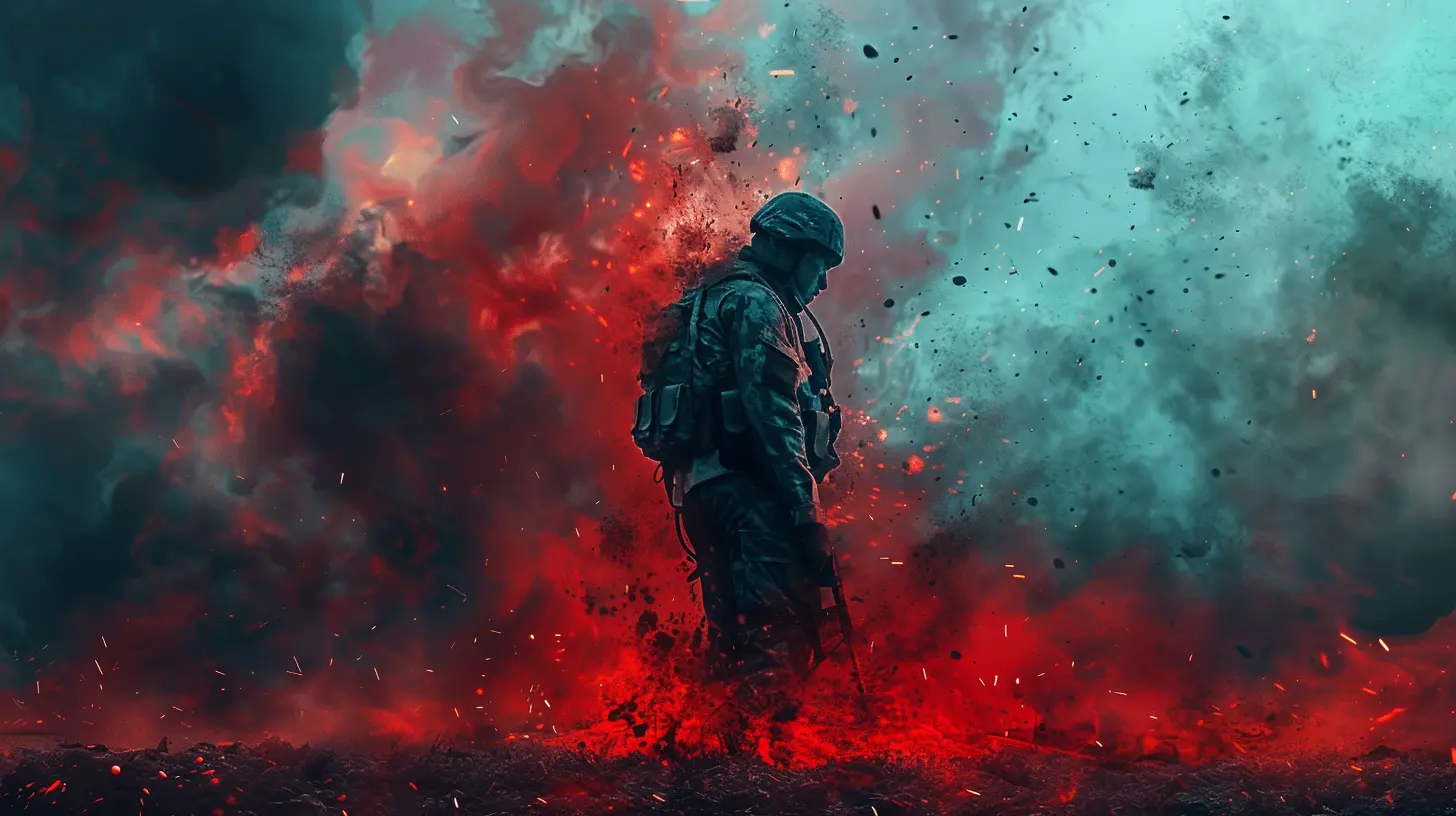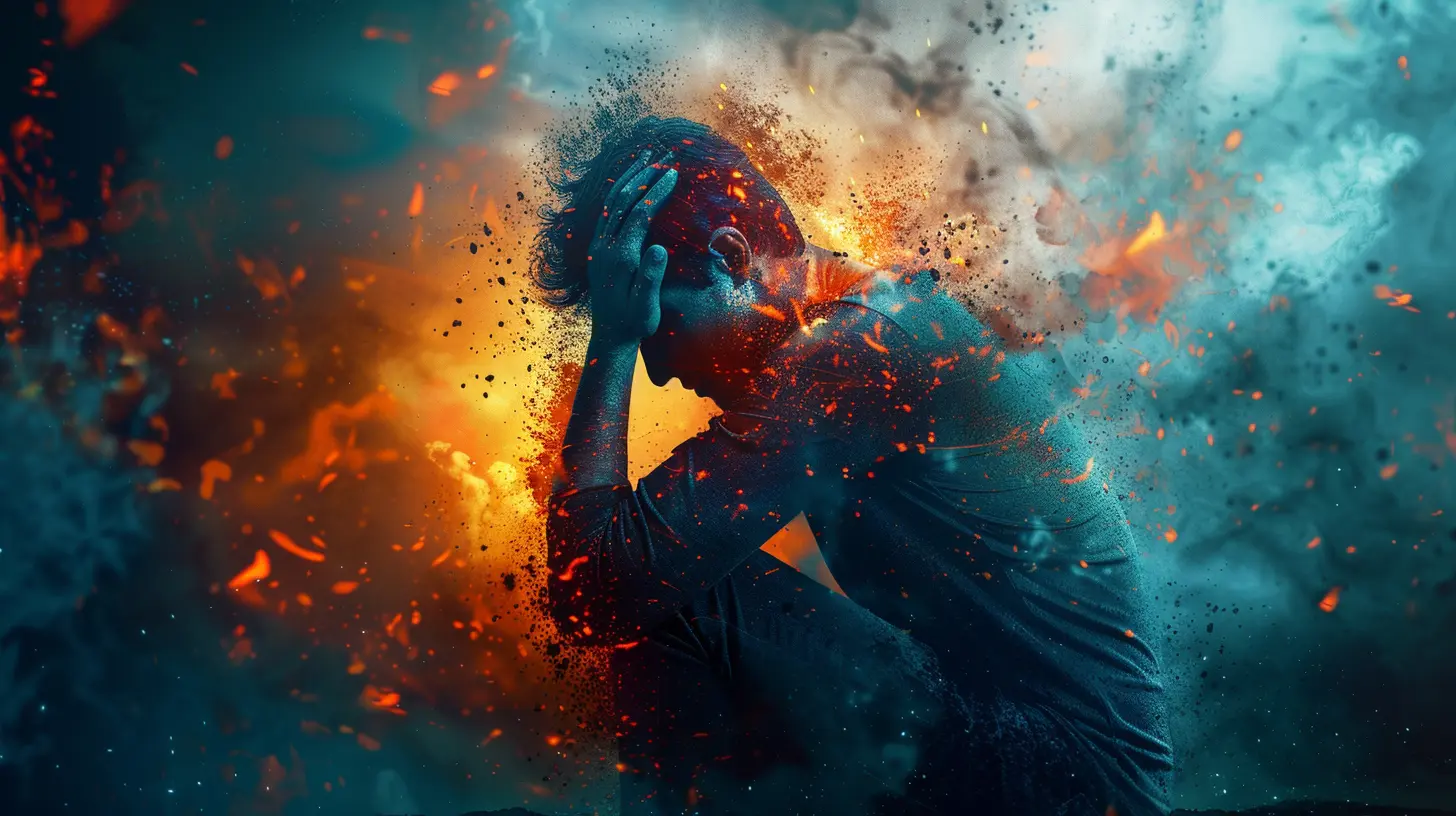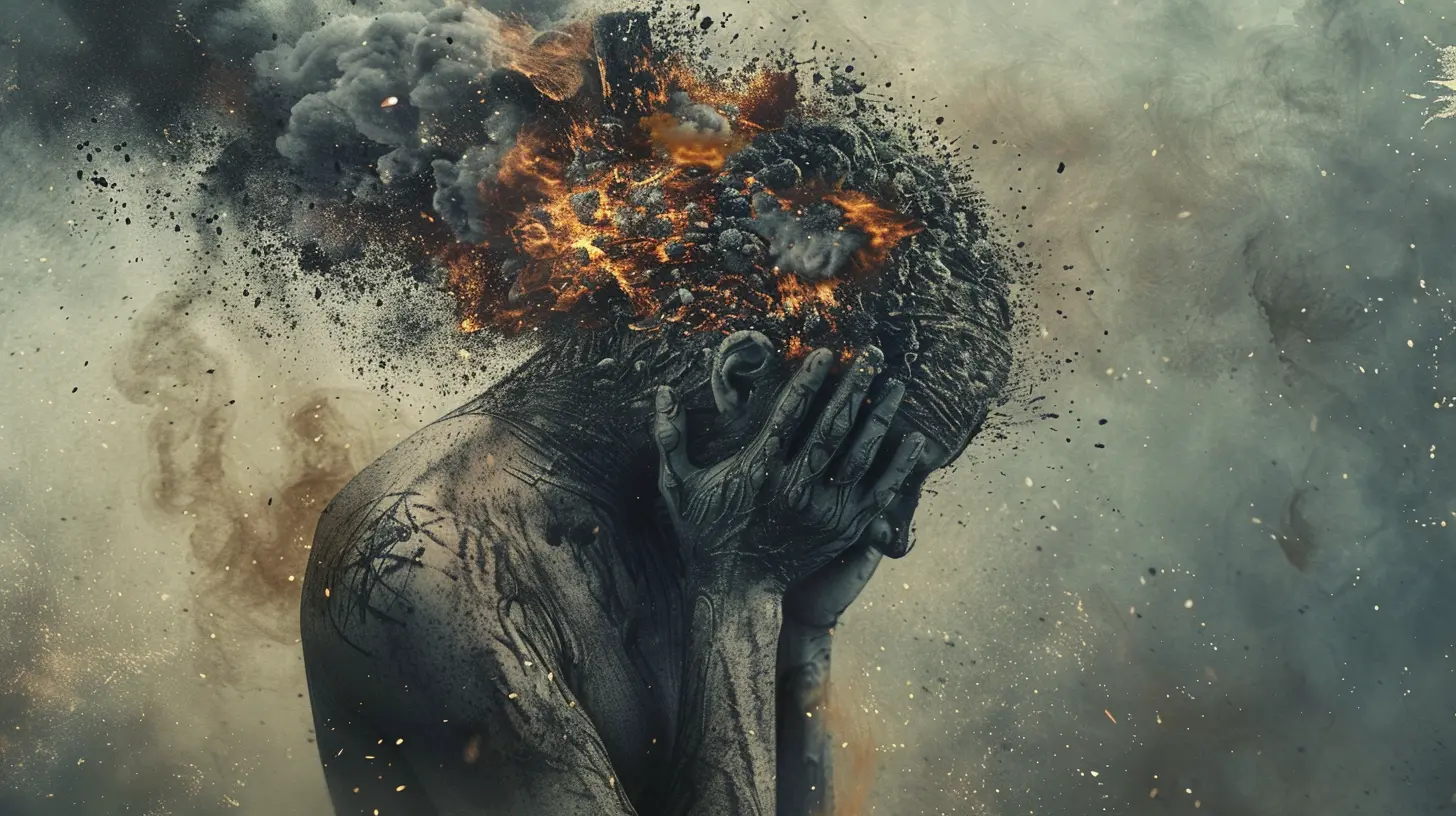Post-Traumatic Stress Disorder: Beyond the Battlefield
23 June 2025
When most people hear "Post-Traumatic Stress Disorder" (PTSD), they immediately think of soldiers returning from war. While combat veterans are at high risk, PTSD isn't just a battlefield condition. It can affect anyone who has experienced trauma—whether it's a car accident, abuse, a natural disaster, or even the sudden loss of a loved one.
PTSD is a silent storm that wreaks havoc on the mind. It reshapes the way people think, feel, and interact with the world. But what exactly is PTSD? How does it affect everyday life? And most importantly, how can those suffering find relief? Let’s dive deep into the reality of PTSD beyond the battlefield.

Understanding PTSD: More Than Just Flashbacks
PTSD is a mental health condition triggered by witnessing or experiencing a traumatic event. It's not just about having bad memories; it's a full-body response that can make everyday life feel like a war zone.When trauma occurs, the brain's natural "fight or flight" response kicks in. But for those with PTSD, this response lingers long after the danger has passed. It's like an alarm system that won’t shut off, causing emotional turmoil, physical symptoms, and altered brain function.
Common Symptoms of PTSD
PTSD manifests differently in each individual, but some consistent symptoms include:- Intrusive Memories – Flashbacks, nightmares, or unwanted thoughts that replay trauma like a broken record.
- Avoidance – Steering clear of places, people, or situations that trigger memories of the trauma.
- Negative Thinking & Mood Changes – Persistent hopelessness, guilt, or feeling detached from loved ones.
- Hyperarousal – Constantly feeling on edge, experiencing sudden bursts of anger, or having difficulty sleeping.
These symptoms don’t just make life difficult—they can completely disrupt careers, relationships, and personal well-being.

Causes of PTSD: Trauma Knows No Boundaries
PTSD doesn’t discriminate. It affects people of all ages, backgrounds, and experiences. Trauma is the root cause, and it comes in many forms.Who Is At Risk?
- Survivors of Abuse or Assault – Physical, emotional, and sexual abuse leave deep psychological scars.- Accident Victims – Car crashes, workplace injuries, or violent attacks can trigger PTSD.
- Natural Disaster Survivors – Hurricanes, earthquakes, fires—sudden devastation can leave lasting trauma.
- First Responders & Healthcare Workers – Constant exposure to distressing events puts them at high risk.
- Childhood Trauma Survivors – Early exposure to neglect or violence can create long-term PTSD symptoms.
Trauma rewires the brain, trapping victims in a state of heightened alertness long after the event. It’s not about "just getting over it"—the brain physically changes, making healing a complex journey.

The Impact of PTSD on Daily Life
Imagine living in a world where your own mind is your worst enemy. PTSD doesn't just bring emotional suffering—it infiltrates every aspect of life.Relationships Take a Hit
PTSD makes it hard to connect with people. Someone may become withdrawn, irritable, or unable to trust others. Partners, family members, and friends may struggle to understand the emotional walls that PTSD builds.Work & Daily Activities Become Overwhelming
Simple tasks can feel exhausting. Concentration issues, anxiety attacks, and emotional numbness can make maintaining a job or handling daily responsibilities incredibly difficult.Physical Health Suffers
PTSD isn’t just a mental battle—it takes a toll on the body. Chronic stress weakens the immune system, increases the risk of heart disease, and leads to sleep disorders. It’s no surprise that many PTSD sufferers also struggle with chronic pain and fatigue.
Breaking the Stigma: PTSD Isn’t Just in Your Head
One of the biggest challenges with PTSD is the stigma surrounding it. Too often, people dismiss PTSD as weakness or believe it's only a military condition. This outdated mindset forces many sufferers into silence, afraid of being judged.But PTSD is real. It's a medical condition that deserves the same attention as any other illness. No one questions the reality of a broken bone—so why should PTSD be any different?
Treatment & Coping Strategies: Stepping Toward Healing
The good news? PTSD is treatable. While the journey isn’t easy, recovery is possible with the right support and strategies.Professional Help Is a Game Changer
Seeking treatment is NOT a sign of weakness—it's a step toward regaining control. Some of the most effective therapies include:- Cognitive Behavioral Therapy (CBT) – Helps reframe negative thought patterns and reduce triggers.
- Eye Movement Desensitization and Reprocessing (EMDR) – Uses guided eye movements to process trauma.
- Medication – Antidepressants and anti-anxiety drugs can help stabilize emotions.
Self-Care & Grounding Techniques
While professional treatment is vital, self-care also plays a crucial role in managing PTSD. Small daily habits can make a big difference:- Mindfulness & Meditation – Helps calm racing thoughts and reduce flashbacks.
- Physical Activity – Exercise releases feel-good chemicals that combat stress.
- Journaling – Writing down thoughts can be a powerful outlet for processing emotions.
- Support Systems – Surrounding yourself with understanding friends and family can provide much-needed comfort.
Breaking Free from PTSD: It’s Possible
PTSD may feel like an endless battle, but healing IS within reach. The key is persistence—taking one step at a time toward recovery. There will be setbacks, but every small victory adds up.No one should have to suffer in silence. If you or someone you know is struggling, reach out. PTSD is tough, but so are those fighting it. And with the right support, brighter days are ahead.
all images in this post were generated using AI tools
Category:
Psychological TraumaAuthor:

Ember Forbes
Discussion
rate this article
2 comments
Bear Bishop
This article beautifully sheds light on the often-overlooked realities of PTSD beyond military experiences. It’s crucial to acknowledge the silent battles many face after trauma. Your insights foster understanding and compassion, reminding us that healing is a journey that deserves recognition and support for all. Thank you!
November 26, 2025 at 4:27 AM

Ember Forbes
Thank you for your thoughtful comment! I'm glad the article resonated with you and helped highlight the broader experiences of PTSD. Your support for this important conversation is greatly appreciated!
Charlie McGonagle
Post-Traumatic Stress Disorder affects countless individuals outside of military contexts, impacting daily life and mental well-being. Acknowledging its diverse triggers—such as abuse, accidents, and loss—is crucial for fostering understanding and support. We must expand our conversations and resources to address PTSD's broader implications for all affected.
June 30, 2025 at 3:19 AM

Ember Forbes
Thank you for highlighting the importance of acknowledging PTSD beyond military contexts. Expanding the conversation around its diverse triggers is essential for fostering empathy and improving support for all affected individuals.


